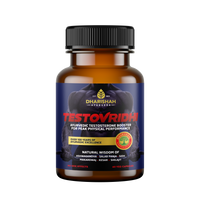Boosting Testosterone Naturally: The Best Foods for Hormone Health
Introduction
Testosterone plays a crucial role in men's health, affecting everything from muscle mass and bone density to mood and libido. While many factors influence testosterone levels, diet is one of the most significant. This article explores the foods that can help increase testosterone naturally, providing you with practical advice to optimize your hormone health.
Understanding Testosterone
Testosterone is the primary male sex hormone, responsible for:
-
Developing male sexual characteristics
-
Building muscle mass
-
Maintaining bone density
-
Regulating mood and energy levels
-
Supporting cognitive function
As men age, testosterone levels naturally decline, which can lead to various health issues. However, certain dietary choices can help maintain healthy testosterone levels.
Top Foods That Increase Testosterone

-
Egg Yolks: Rich in vitamin D, cholesterol, and healthy fats, all essential for testosterone production.
-
Oysters: High in zinc, a mineral crucial for testosterone synthesis.
-
Fatty Fish: Salmon, mackerel, and sardines provide omega-3 fatty acids and vitamin D, both beneficial for testosterone.
-
Beef: Contains protein, zinc, and saturated fats that support testosterone production.
-
Pomegranates: Studies suggest pomegranate may boost testosterone levels and improve mood.
-
Garlic: Contains allicin, which may increase testosterone levels and reduce cortisol.
-
Leafy Greens: Spinach, kale, and Swiss chard are rich in magnesium, which supports testosterone production.
-
Brazil Nuts: High in selenium, which is essential for testosterone metabolism.
-
Avocados: Provide healthy fats and boron, both important for testosterone levels.
-
Ginger: May increase testosterone levels and improve sperm health.
The Role of Nutrients in Testosterone Production
Several nutrients play key roles in testosterone production:
-
Vitamin D: Acts as a steroid hormone in the body, crucial for testosterone synthesis.
-
Zinc: Essential for testosterone production and sperm health.
-
Magnesium: Helps increase free testosterone levels.
-
Vitamin B6: Supports the production of androgens, which stimulate testosterone production.
-
Omega-3 Fatty Acids: Help regulate sex hormone production, including testosterone.
Ensuring your diet is rich in these nutrients can support healthy testosterone levels.
Dietary Habits for Optimal Testosterone Levels
-
Maintain a Balanced Diet: Include a variety of fruits, vegetables, lean proteins, and healthy fats.
-
Don't Overeat or Undereat: Both extremes can negatively impact testosterone levels.
-
Consume Adequate Protein: Aim for 0.8-1 gram of protein per kilogram of body weight.
-
Include Healthy Fats: Monounsaturated and saturated fats are important for testosterone production.
-
Consider Intermittent Fasting: Some studies suggest it may boost testosterone levels.
-
Stay Hydrated: Proper hydration supports overall hormonal balance.
Foods to Avoid for Testosterone Health
While some foods can boost testosterone, others may have the opposite effect:
-
Soy Products: Contains phytoestrogens that may lower testosterone levels.
-
Processed Foods: Often high in trans fats and sugar, which can negatively impact hormone levels.
-
Alcohol: Excessive consumption can lower testosterone levels.
-
Mint: Some studies suggest mint may lower testosterone levels.
-
Licorice Root: May decrease testosterone levels if consumed in large amounts.
Ayurvedic Perspective on Testosterone-Boosting Foods
Ayurveda, the ancient Indian system of medicine, offers a holistic approach to hormone health. According to Ayurvedic principles, certain foods and herbs can support testosterone production:
-
Ashwagandha: Known as an adaptogen, it may help increase testosterone levels and improve sperm quality.
-
Shilajit: A mineral-rich substance that may boost testosterone levels and improve overall vitality.
-
Safed Musli: Traditionally used to enhance male reproductive health and testosterone levels.
-
Fenugreek: May help increase testosterone levels and improve libido.
-
Gokshura: Believed to support testosterone production and overall reproductive health.
Dharishah Ayurveda, a respected name in Ayurvedic medicine, offers products that incorporate these traditional ingredients to support hormone health.
Supplements and Natural Remedies
While a balanced diet should be the primary focus, some supplements may help support testosterone levels:
-
Vitamin D: Especially important for those with limited sun exposure.
-
Zinc: Crucial for testosterone production, particularly for athletes and vegetarians.
-
Magnesium: Often deficient in modern diets, supplementation may be beneficial.
-
D-Aspartic Acid: An amino acid that may boost testosterone levels.
Testovridhi Capsules an ayurvedic testosterone booster from Dharishah Ayurveda offer a natural blend of Ayurvedic herbs designed to support testosterone health.

Lifestyle Factors That Affect Testosterone
Diet is just one piece of the puzzle. Other factors that influence testosterone levels include:
-
Exercise: Resistance training and high-intensity interval training can boost testosterone.
-
Sleep: Aim for 7-9 hours of quality sleep per night.
-
Stress Management: Chronic stress can lower testosterone levels.
-
Weight Management: Obesity is associated with lower testosterone levels.
-
Avoiding Endocrine Disruptors: Limit exposure to plastics, pesticides, and other chemicals that may disrupt hormone balance.
Conclusion
Maintaining healthy testosterone levels is crucial for overall well-being, especially as men age. By incorporating testosterone-boosting foods into your diet, avoiding foods that may lower testosterone, and adopting a healthy lifestyle, you can support your body's natural hormone production.
Remember, while diet plays a significant role, it's just one aspect of hormone health. For personalized advice, consider consulting with a healthcare professional or an Ayurvedic practitioner.
Explore the range of natural testosterone support products offered by Dharishah Ayurveda, including Testovridhi Capsules, to complement your diet and lifestyle efforts in maintaining optimal testosterone levels.
By making informed choices about your diet and lifestyle, you can take proactive steps towards maintaining healthy testosterone levels and enjoying the many benefits of balanced hormones.












